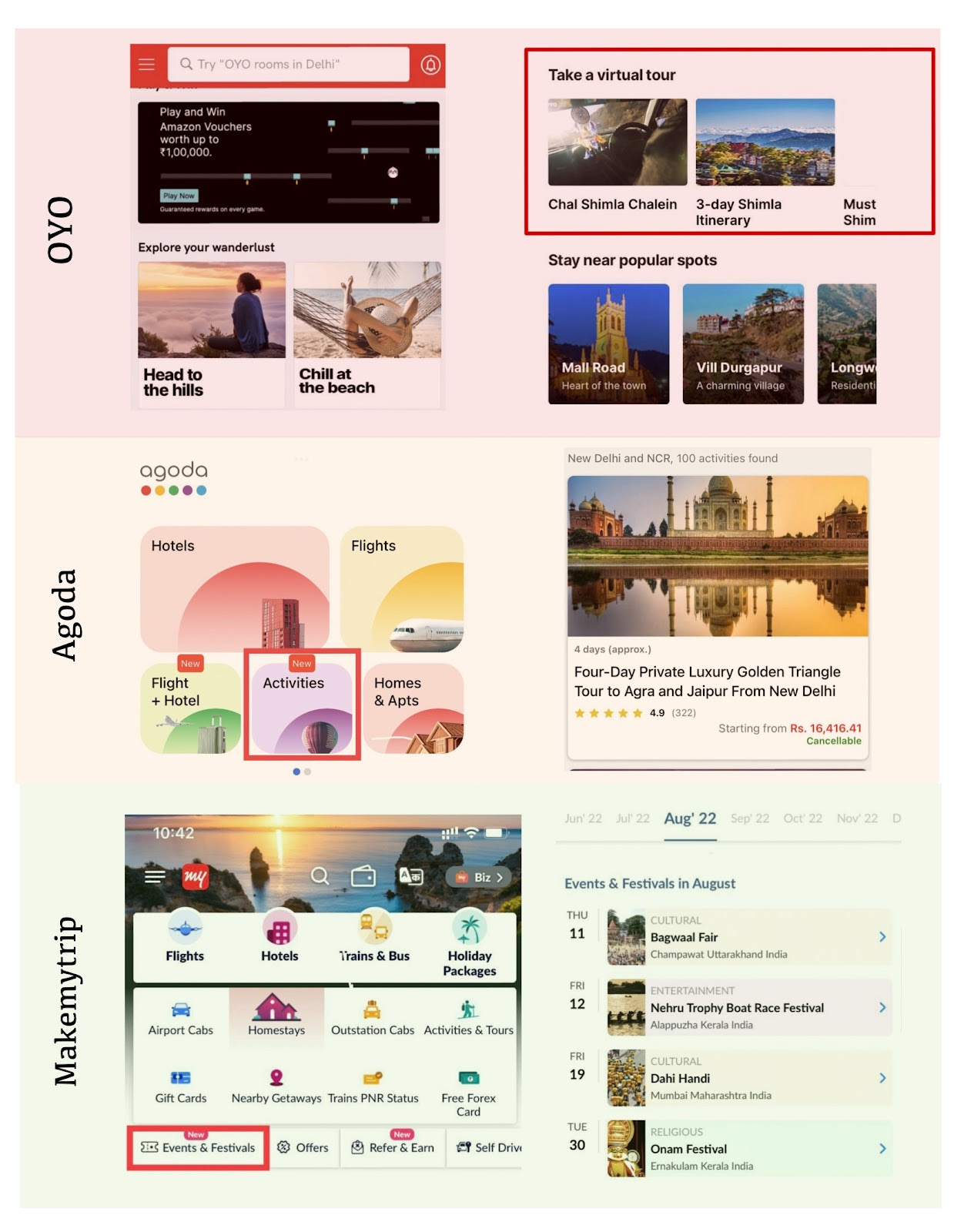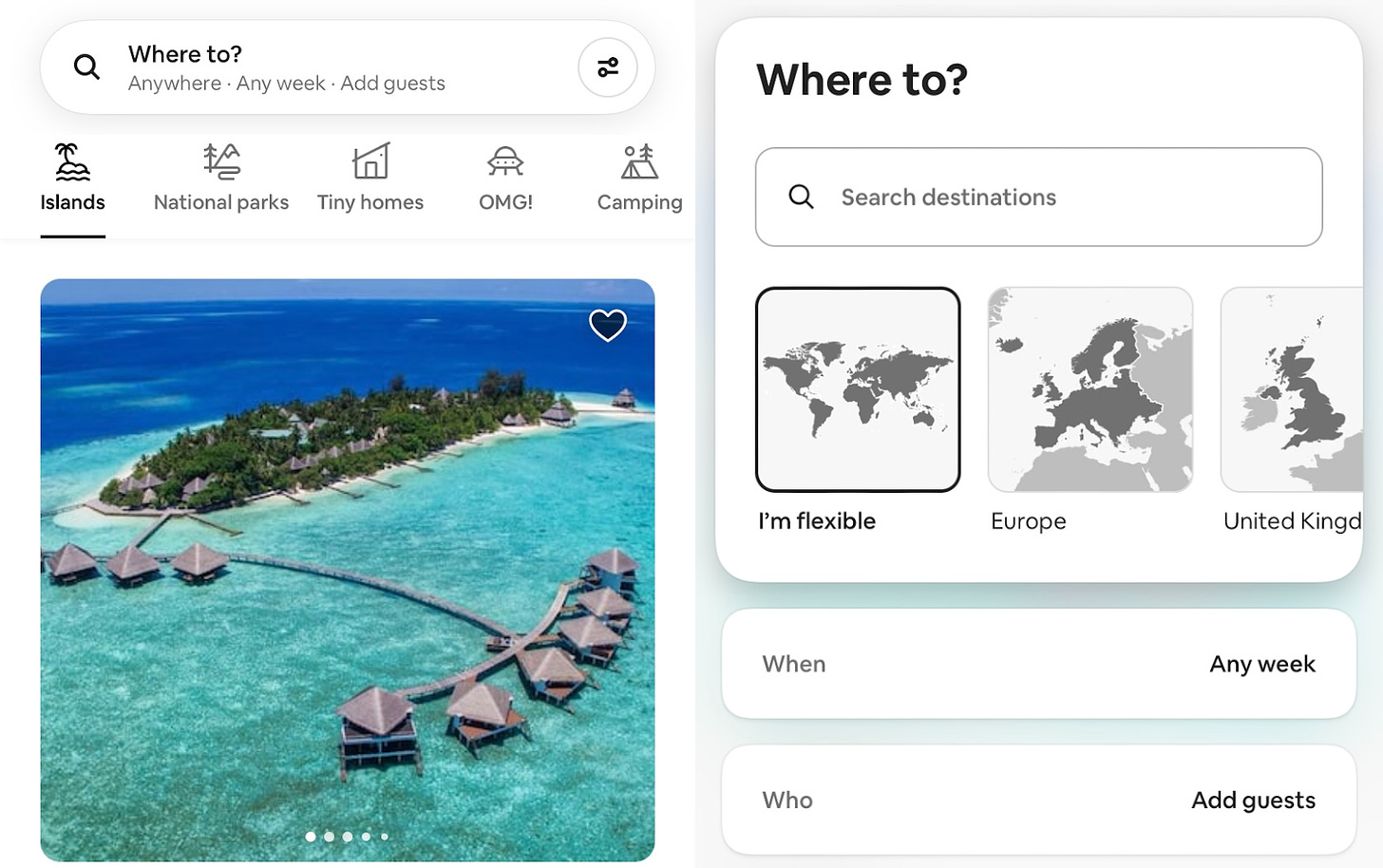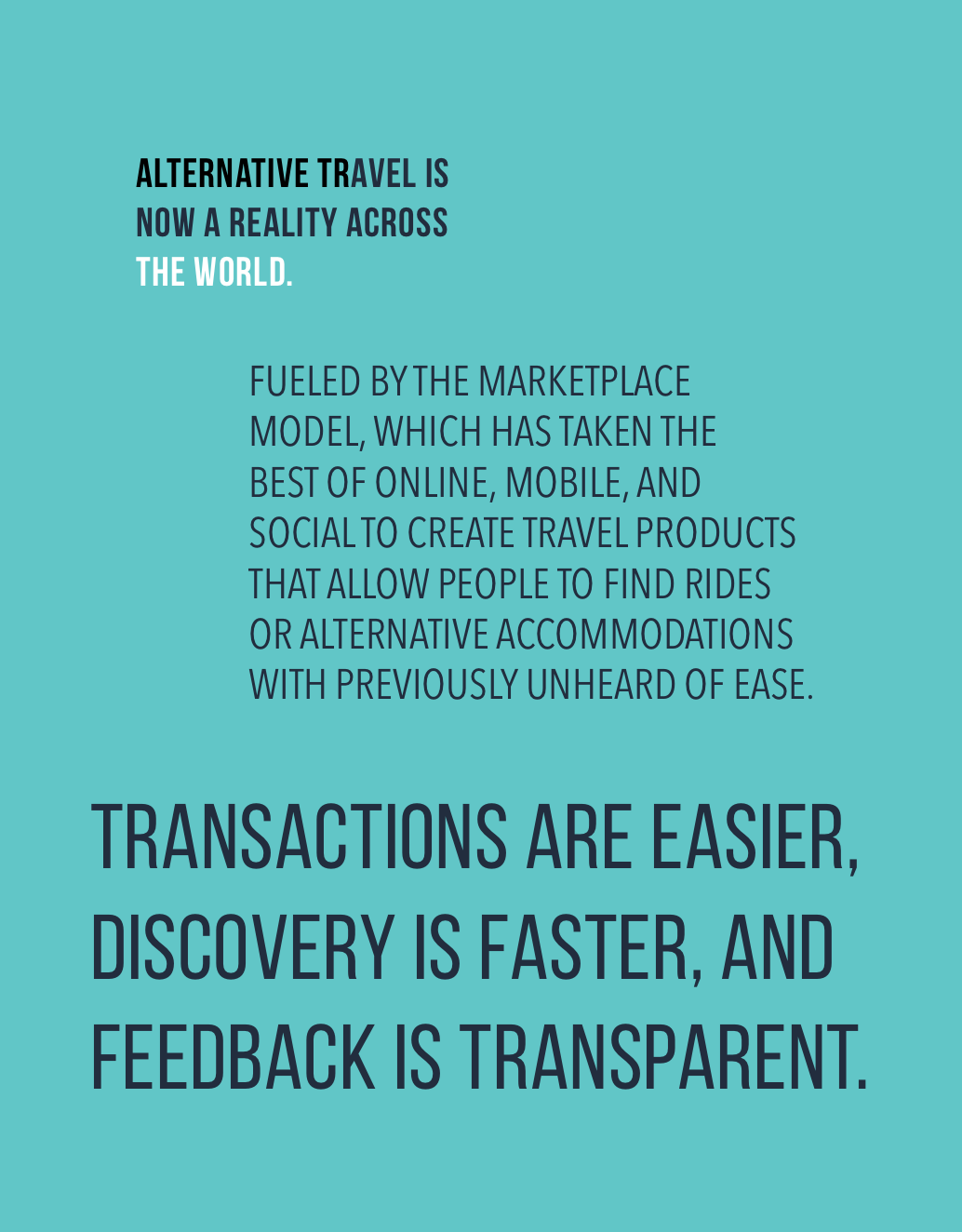MakeMyTrip, Airbnb, OYO want you to stop searching for hotels!
#1 Discussing the evolution of search in travel, and how OTAs now sell experiences instead of properties.
For today's 'Understanding Nuances', we present a very interesting topic to discuss. We talk about how travel and especially the way we search for travel has evolved in the past few years.
Recently travel tech apps (especially those that have a dependency on online hotel booking) have started introducing features which are not exactly related to hotel booking. Discovery and selection are not part of the linear chain anymore; many to-and-fro happen today. Things run in parallel, and it only makes sense to cage that to-and-fro inside the app.
Let's look at the home page of 3 major travel tech apps -
I have highlighted one common theme among them. These apps have doubled down on discovery options for users. For some reason, these events, festivals or virtual tours are basically distracting users from using the search box. They don't want to sell you hotels; they want to sell you the experience (or pretend they can).
Additionally, these apps ensure that your discovery starts from the app and not some random video on YouTube or Instagram reel. And for that, they bring those videos and immersive experiences to the app itself. This movement from search to other real estates for discovery is something we have observed globally as well. Airbnb is a supreme example where it revamped the whole search functionality and tied that search section with categories of different experiences.
This is what Airbnb has to say about the topic -
"Searching for travel online has worked the same way for the past 25 years: you enter a location and dates into a search box. But the world has changed. Millions of people are more flexible about where and when they can travel. With homes in over 100,000 towns and cities, Airbnb opens up a world of possibilities.
To help guests discover these possibilities, we're introducing the biggest change to Airbnb in a decade. With a completely new way to search, guests will be able to discover millions of unique homes they never thought to search for. And when they book, guests will have the confidence of knowing that Airbnb has their back each step of the way."
Travel apps have undergone a dramatic change in the last couple of years. Pandemic has shaped the way we travel and think about travel. Before the pandemic, I do not recall people discussing and making plans about going to some isolated place in Himachal just to live there for a couple of weeks.
Fast forward to the post-pandemic time, I know many people who went to Himachal, not for sightseeing but to live, eat and spend time sitting in a room, binging on an old monk. They have stopped going to Shimla, Manali and other popular touristy destinations. Suddenly everyone is searching for these remote destinations where they can get the place solely for themselves.
I can support my case here, attaching here a snapshot of how two different sub-regions in Goa have trended in terms of search interest on the internet (for the last five years)

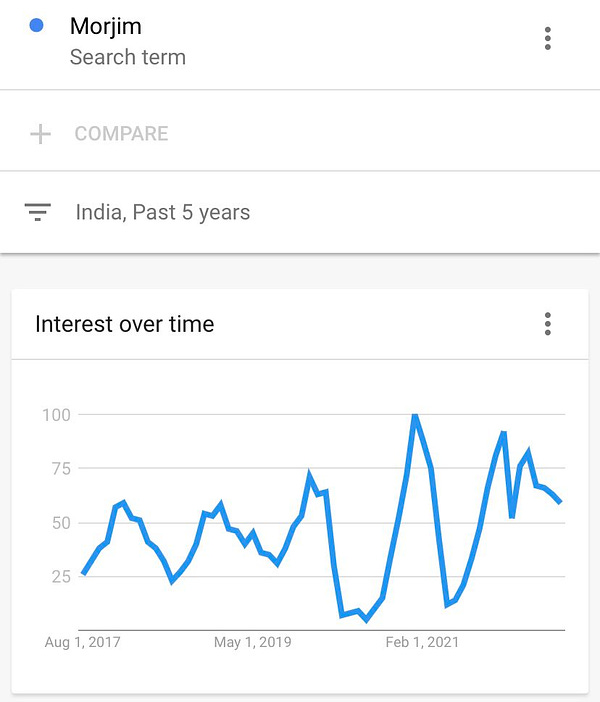
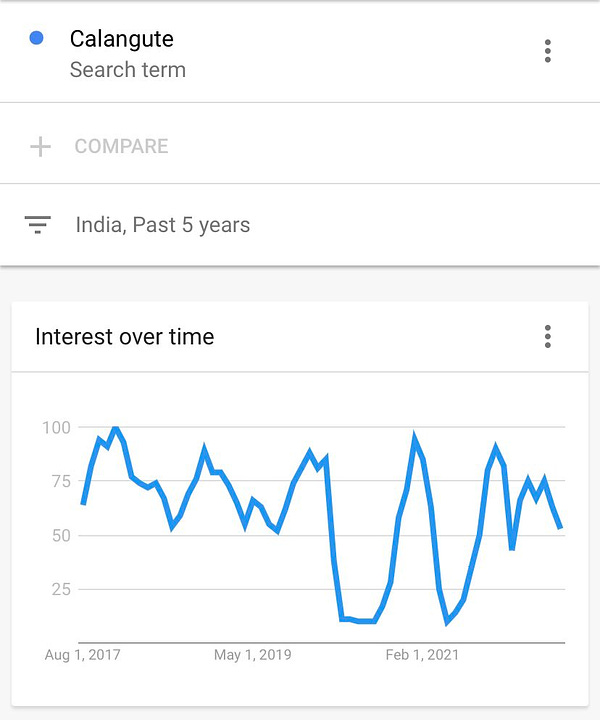
The baseline for Morjim (a remote region) trended more than Calangute post-pandemic. Interest for Calangute spiked around 2017, whereas for Morjim, it spiked after the first wave of the pandemic. Something similar happened everywhere else too.
This page from "The Future of Travel in 2020" document perfectly captures this scenario -
It becomes interesting to sit and observe how different OTAs are trying to achieve the same end goal, solve the same problem, and create different features and user experiences on the app. On that, we can end today's piece on top fortnightly app trends.
We post daily product observations on Twitter. After posting over 175 product observations in the last six months, we realized that a common theme arises across apps and similar patterns emerge from them. A feature or strategy is adopted by a player, marketed by another and eventually becomes prevalent. We will try to bring new perspectives around product features every two weeks straight into your mailbox!
We’ll be seeing you next week with another teardown. Until then, if you enjoyed today’s article and found it insightful, do share ‘Understanding Nuances’ among your friends and peers!



